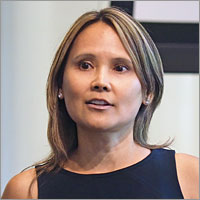Blog Post
Patient Awareness of Industry Payments to Physicians
A national evaluation
When patients see their doctors, they expect that their health and clinical needs will be the main drivers of decisions regarding treatment. However, studies have shown that other factors may influence clinical decisions, such as doctors’ interactions and relationships with drug companies. So what can patients do if they want to learn about these influences when choosing who will care for them?
One option is to search for their physicians on the Open Payments website, a comprehensive database that reports drug and device company payments to physicians. The database is an outgrowth of the Physician Payments Sunshine Act, which requires pharmaceutical and medical device firms to publicly release records of financial payments and gifts of monetary value made to doctors. A key objective of this legislation was to improve patient access to information about their physicians’ financial ties with industry.

So has the legislation achieved this goal? A new study in BMJ Open led by LDI Senior Fellow Genevieve Kanter, in collaboration with colleagues Michelle Mello at Stanford, Daniel Carpenter at Harvard, and Lisa Lehmann at the Veterans Health Administration, finds that the Open Payments program has had little success in improving public awareness and knowledge of industry payments.
The team conducted a nationally representative survey of a group of about 2,200 U.S. adults just before Open Payments’ disclosure in 2014 and two years after initial disclosure in 2016. They used difference-in-difference methods to control for national trends, comparing changes in awareness of industry payments in states that already had their own Sunshine laws with states where payment information was newly disclosed because of the federal Sunshine law.
Open Payments led to a 10 percentage point increase in awareness that industry payments information was publicly available. It did not, however, change the percentage of people who knew whether their own doctor had received any industry payments. After two years of the program, about 13% were aware that the information was publicly available, and only 3% knew whether their doctor had received any industry payments.
Since many studies have shown that patients value this information, the Centers for Medicare and Medicaid Services may need to do more beyond unveiling a website to engage patients on this issue. Industry payments could be incorporated into information systems that patients are already using, such as “Find a Physician” websites. Doctors, health systems, and commercial insurers can also play an important role in getting this information to the public. Doctors, for example, could highlight their “pharm-free” status to current and prospective patients.
When the federal Sunshine legislation was originally introduced, one of its stated goals was to increase patients’ awareness and engagement with the issue of industry payments. This evaluation suggests that for the most part, industry payments to physicians remain an open secret.
Melissa Berkowitz is a Senior Research Coordinator in the Department of Medical Ethics & Health Policy at Penn.